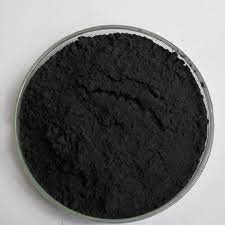Overview of Boride powder:
Metal Boride Powder is a brand new kind of ceramic material with distinctive properties. Boride powder is a material that has the advantages of a high melting point high hardness, excellent thermal conductivity as well as electrical conductivity. This means that boride powder can be used as a non-heat-resistant and hard material that is able to be precisely machined using the use of electrical discharge. For instance titanium diboride powder is known to have outstanding oxidation resistance as well as electrical conductivity. Chromium diboride powder has excellent resistance to oxidation and high temperature strength.
Application of Boride powder:
Boride ceramic powders can be found for the manufacturing of parts for rocket structural components and components for aerospace, turbines samples holders for high temperature material testing instruments and machines bearings, high-temperature cone heads to measure hardness, as well as certain structural parts for nuclear-powered devices.

Boride powder is widely employed in industrial ceramics, additives, deoxidizers, and so on.
Boride (metal) ceramics are a novel type of material that contains functional boron.
Magnesium diboride as an innovative material that has superconductivity, has provided the possibility of studying a new class of high-temperature semiconductors, with basic structure.
Boride powder supplier:
We provide different kinds of boride powders, such as hafnium diboride powder, zirconium diboride powder, aluminium diboride powder, magnesium diboride powder, titanium diboride powder, etc. Contact us via email or click on the product you want to purchase to send us an inquiry.
Payment Term:
T/T, Credit Card, Western Union, Paypal etc.
Shipment Term:
By courier, by air, by sea, as customers request.
Storage conditions:
1) Store in a dry environment at room temperature.
2) Avoid damp and high temperature.
3) Use immediately after opening the inner packing bag.
FAQ:
Q1:
Re:What is boron powder?
Boron powder, also known as boric acid powder, is a white amorphous powdered solid with the formula H3BO3. Boron powder has a wide range of industrial uses and can be used in the manufacture of glass, ceramics, plastics, paints, pigments, and other products. In addition, boron powder can also be used as a preservative, astringent, insecticide, and so on. Necessary safety measures need to be taken when using boron powder to prevent harm to the human body and the environment.
Q2:
What is the use of boron powder?
Re:Used in the manufacture of glass, ceramics, enamel, and other products, this is because boron powder has excellent chemical stability and can increase the hardness and strength of the product.
In the medical field, boron powder can be used to treat conditions such as cancer and viral infections.
In the nuclear industry, boron powder can be used in the manufacture of control rods and moderators for nuclear reactors, as well as in the disposal of nuclear waste.
In the electronics industry, boron powder can be used to manufacture semiconductor materials such as high-purity silicon and germanium and is a crucial raw material in the manufacturing process of integrated circuits and microelectronic devices.
Q3:
Which countries are the most widely used boron powders?
Re:Boron powder is widely used in many countries and regions, but the specific countries where it is most commonly used may vary by region and use. In Asia, China, Japan, and South Korea are the primary producers and consumers of boron powder, and the glass, ceramics, and metallurgy industries in these countries have a significant demand for boron powder. In addition, developed countries such as Europe and North America are also important consumer markets for boron powder, and the demand for boron powder in the fields of electronics, medicine, and nuclear industry is also significant in these countries.
Q4:
What are the advantages of boron powder?
Re:Chemical stability: boron powder has a high degree of chemical stability, is not easy to react with other substances, and can be used in high temperature, high pressure, corrosion, and different harsh environments.
High melting point and hardness: The melting point and hardness of boron powder are very high and can be used to manufacture materials with high melting points and hardness, such as glass, ceramics, metals, etc.
Low density and lightweight: boron powder has a low density and has the characteristics of light, which can be used to manufacture lightweight materials and products, such as aerospace, automotive, electronic products, etc.
Electrical insulation: boron powder has good electrical insulation and can be used to manufacture insulating materials and insulating coatings.
Q5:
What is the toxicity of boron powder?
Re:Boron powder has a high toxicity, especially sodium borate, and has been banned as a food additive in many countries. Borax is very harmful to human health; continuous intake will accumulate in the body, interfere with the digestive tract of enzymes, and cause acute poisoning symptoms for vomiting, diarrhea, erythema, circulatory system disorders, shock, coma, and other so-called bor acidosis. If the human body ingests too much boron, it will cause cumulative poisoning of multiple organs. The toxic dose of borax for adults is 1-3 grams, the lethal dose for adults is 15 grams, and the deadly dose for infants is 2-3 grams.
